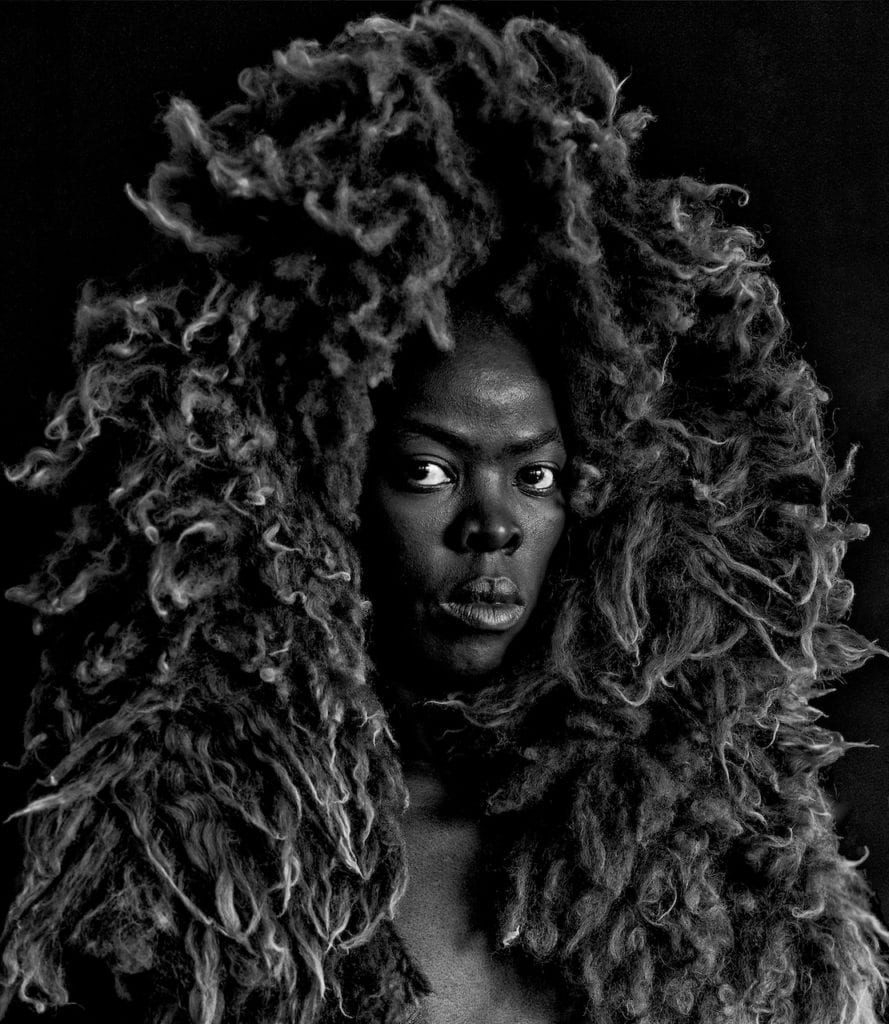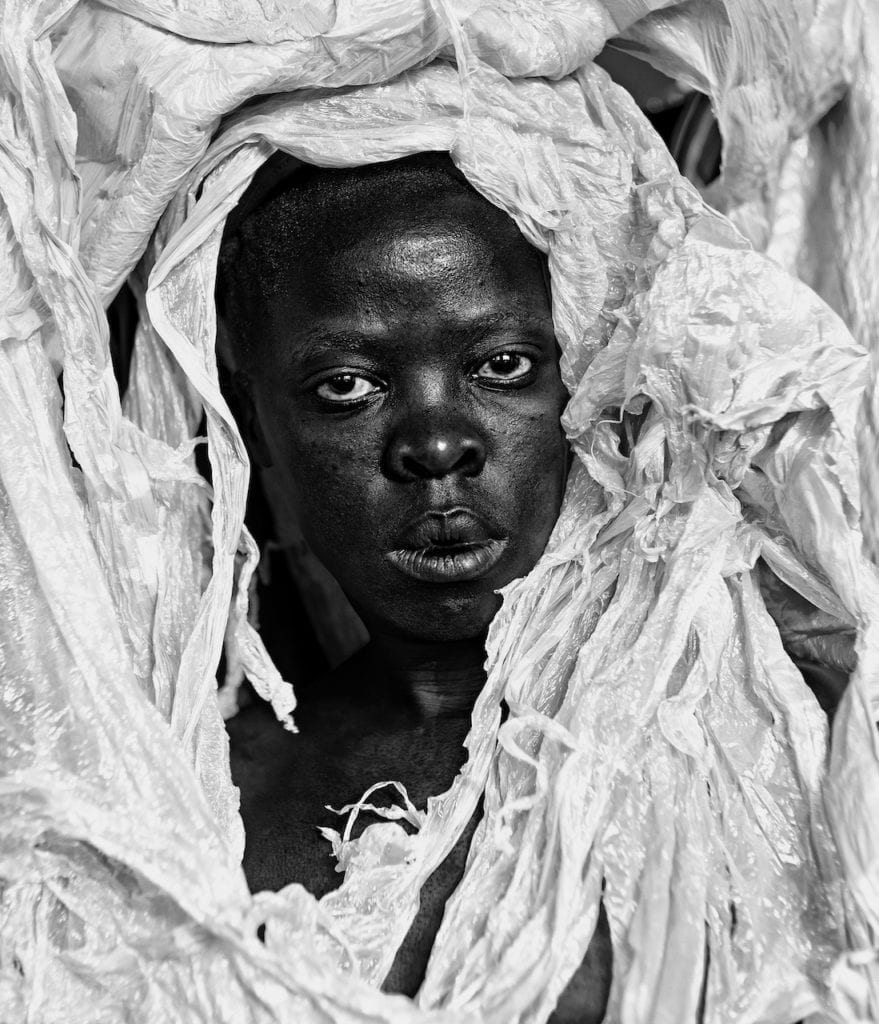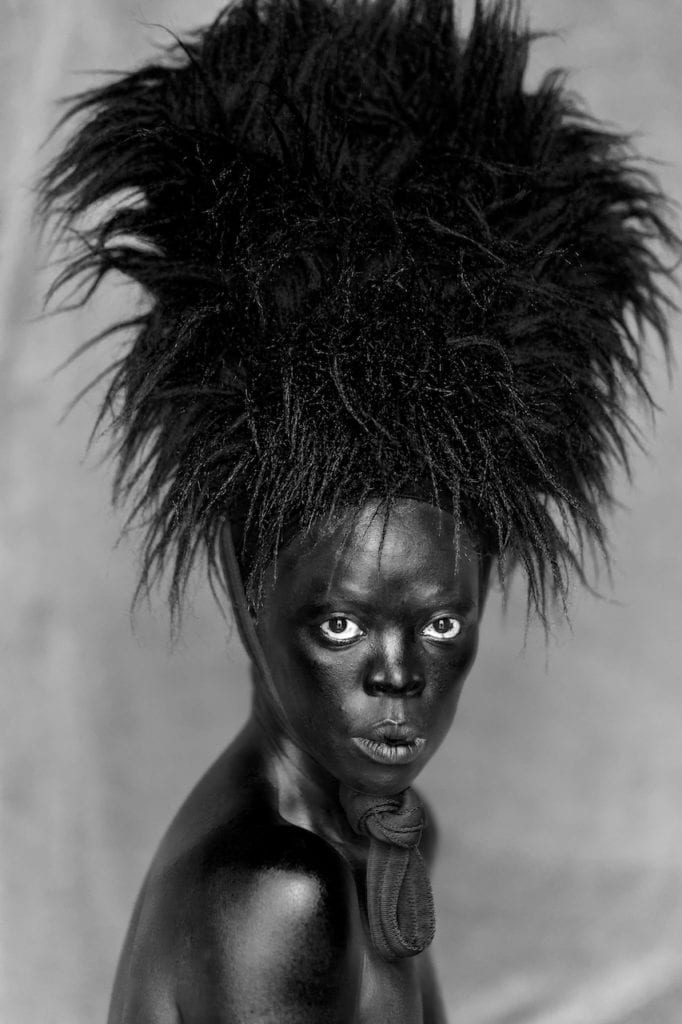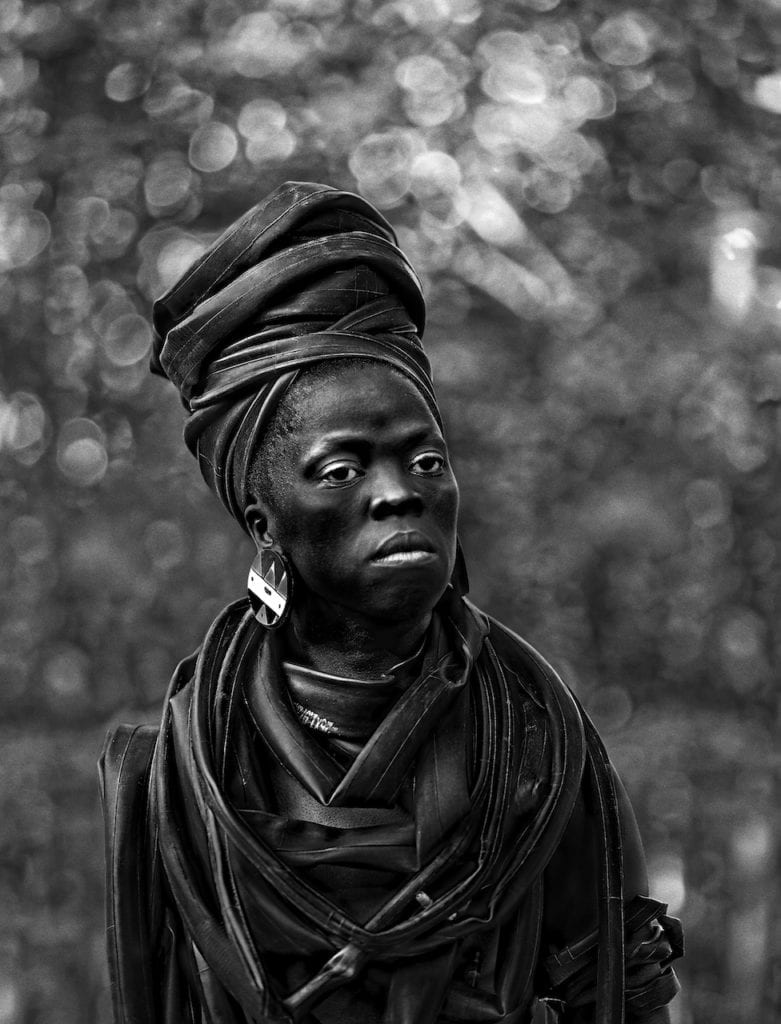“I’m reclaiming my blackness, which I feel is continuously performed by the privileged other,” says South African photographer Zanele Muholi. “My reality is that I do not mimic being black; it is my skin, and the experience of being black is deeply entrenched in me. Just like our ancestors, we live as black people 365 days a year, and we should speak without fear.”
Born in 1972 in Umlazi, a township close to Durban, Muholi defines herself as a visual activist using photography to articulate contemporary identity politics. In her latest series, Somnyama Ngonyama: Hail the Dark Lioness, she uses her body to confront the politics of race and representation, questioning the way the black body is shown and perceived.
She worked on the self-portraits for three years, echoing the aesthetics of black-and-white portraiture and fashion photography and dressing in different outfits to play with different personas. “The aim of my project is to speak about historical cases, confronting the politics of race and pigment in the photographic archive,” she says, “while commenting on specific events in South Africa’s political history, such as the Marikana massacre.”
Muholi gives me an example of what she means, telling me about two girls instructed by their teacher to not to speak in any language but English. “In a country like South Africa, where you have eleven official languages, people are supposed to be treated in the same way,” she says. “Saying that to young girls is like taking them back to the colonial era, where you have to be something that is not who you really are.”
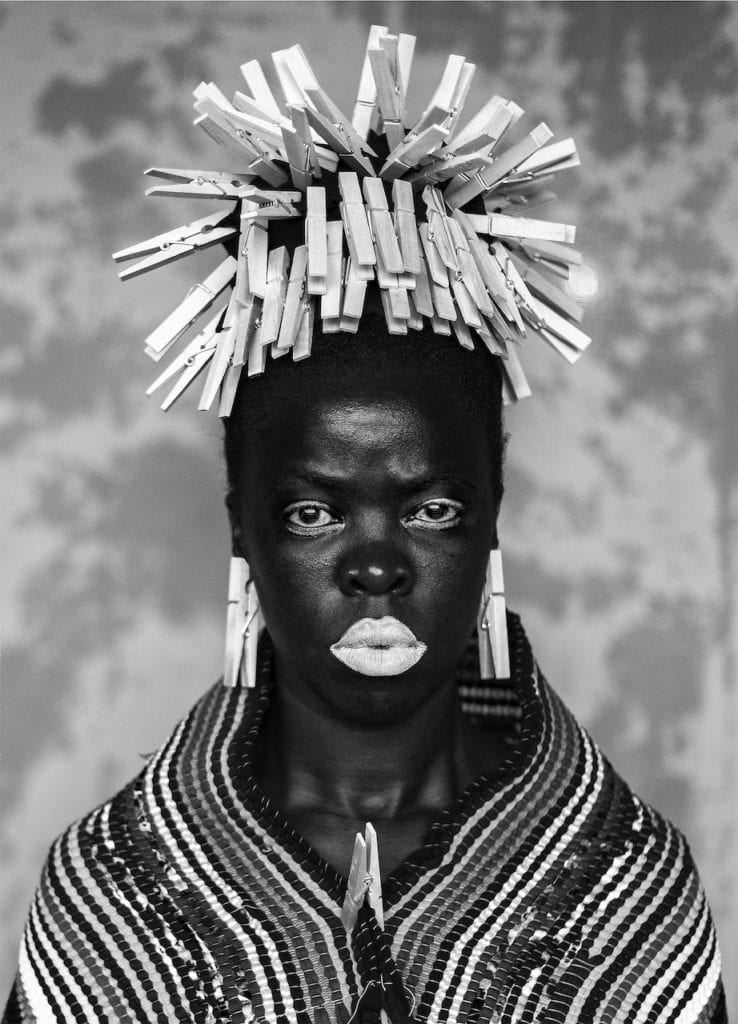
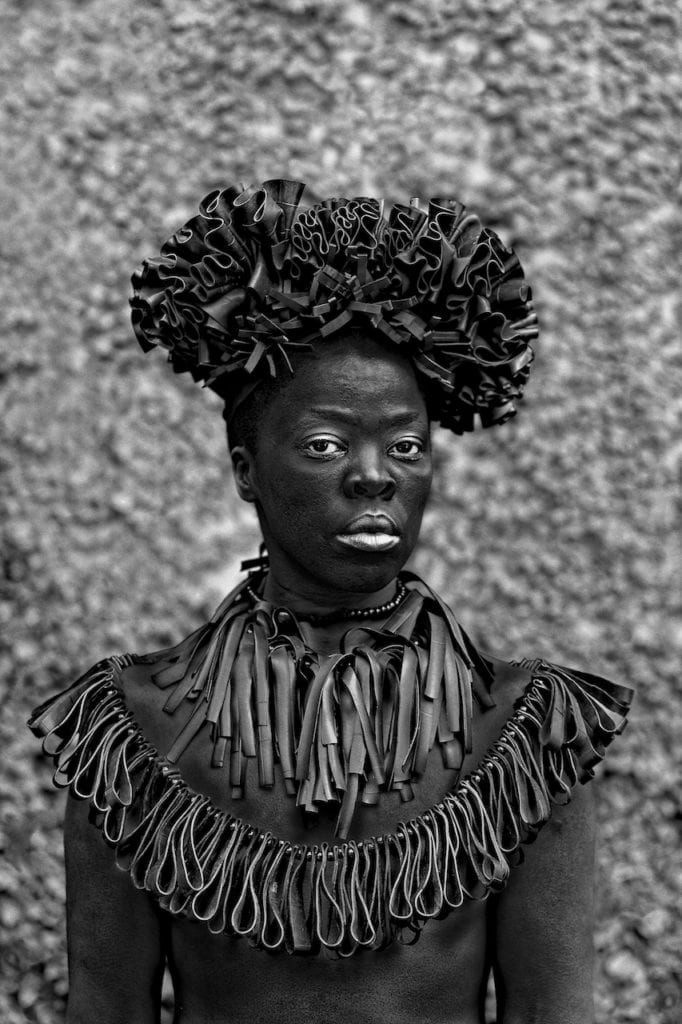
Muholi also has three other important facets to her cultural identity, though – being a woman, African, and queer – and says the latter is also key in a contemporary South African in which gay people suffer “corrective” rape. Just last month, she says, a young 26-year-old who identified as a lesbian was found raped, and burnt.
“As LGBTI we still fighting the same war of the past, where our bodies are violated on daily basis simply because of gender expression, or simply because of our sexuality,” she says. “We are talking about a phenomenon that is ongoing, where members of our community perish unnecessarily because of hate. People believe that we shouldn’t exist, we shouldn’t survive, and the root of all of this is ignorance.”
For Muholi, this hate thrives in places of difference and at boundaries, “at the fringes of the societies, that’s where the violence is right”. The townships, where black people moved or were forcibly taken, are displaced, she points out, located far from the towns where people have to go to work. “In the past, most of our mothers were forced to have a pass book to get access to places out of their homelands,” she says.
“Now you might not need the passbook to satisfy the authorities, but there are other ways to exclude people from accessing what they deserve.”
Somnyama Ngonyama, Hail the Dark Lioness by Zanele Muholi is on show at Nottingham’s New Art Exchange from 28 April – 24 June www.nae.org.uk This exhibition is a touring show curated by Autograph ABP, which first went on show at Autoraph from 14 July – 28 October 2017 https://autograph-abp.co.uk/ The book of this project will be published by Aperture in September, priced $75 https://aperture.org/shop/somnyama-ngonyama-hail-the-dark-lioness
